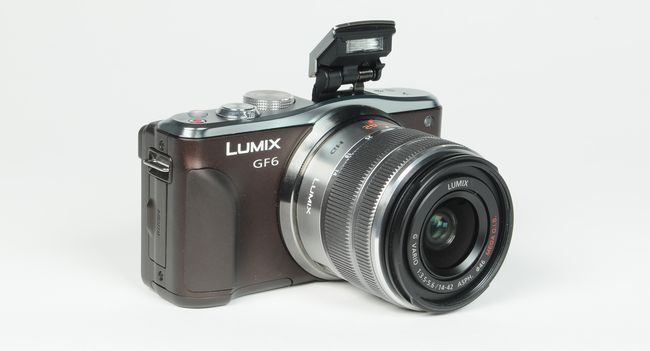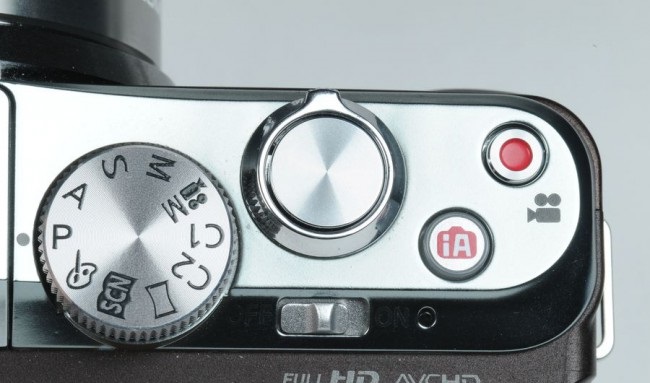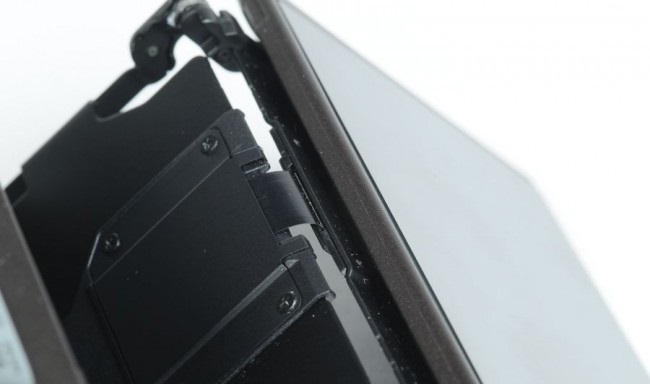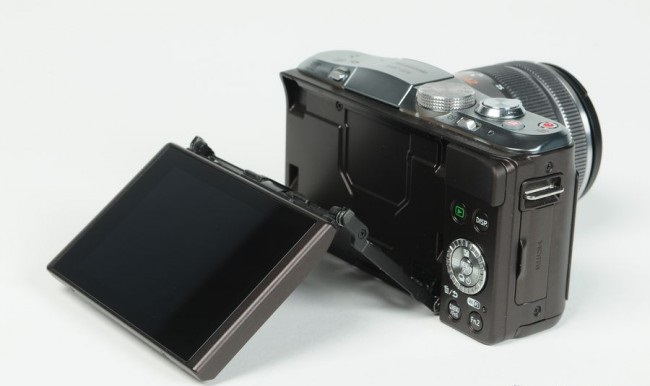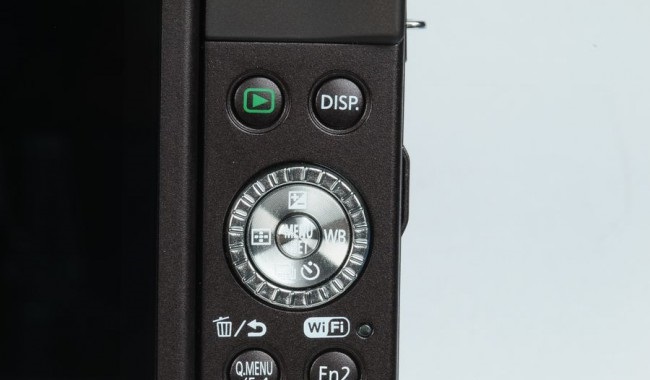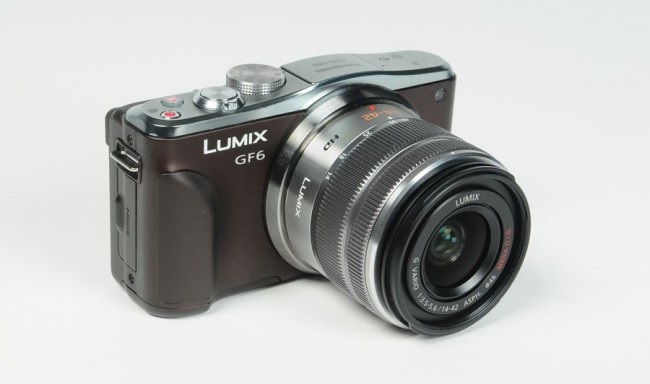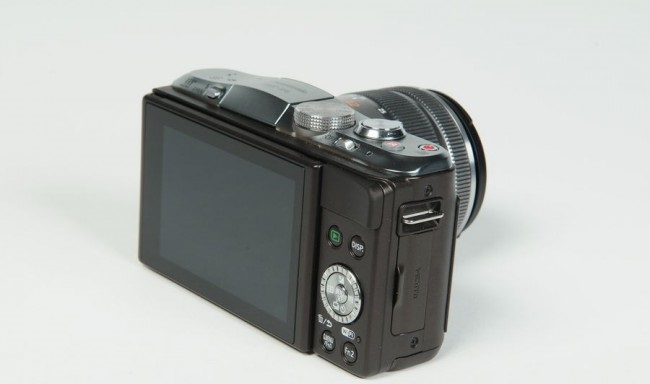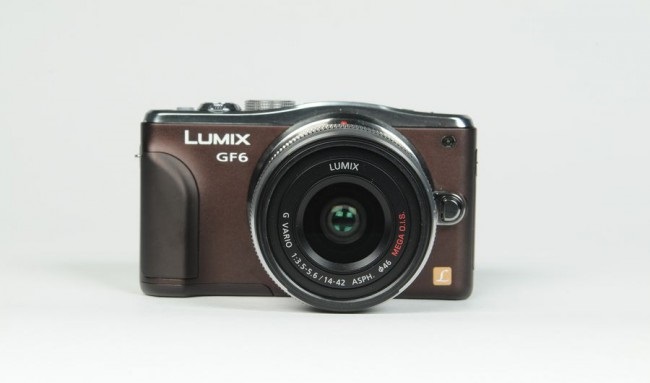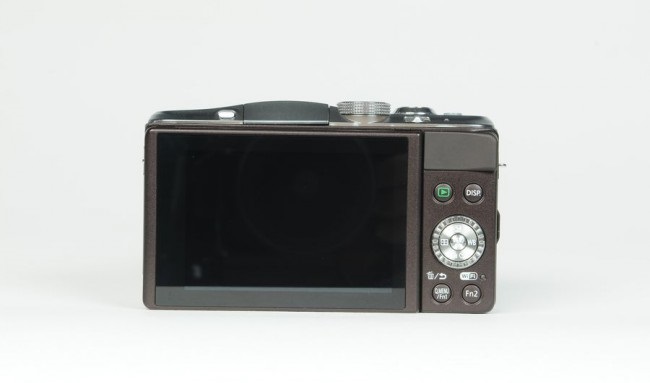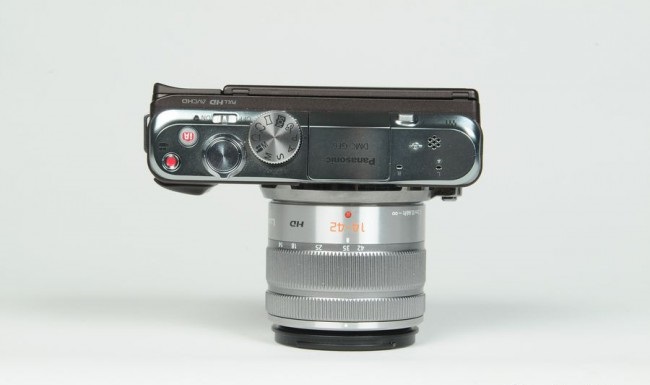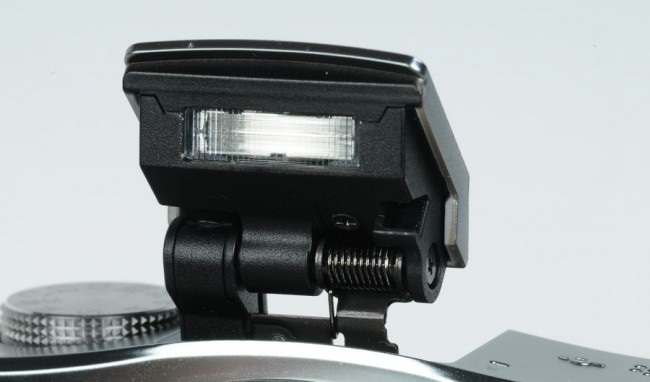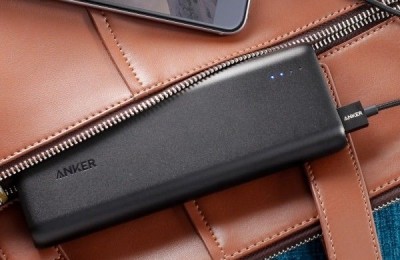Manufacturers are improving their products on a pre-planned and approved for several years schedules. This model 20XX receives such and such features as follows, 20XX, – such and such, etc. Plans for such top secret, so we can reap the benefits of watching and speaking assumptions.
Panasonic Lumix DMC-GF6 replaced his predecessor GF5 after a year of active presence of the “five” in the market, however, and GF5, and even the GF3 still sold.
Before GF6 compare to its predecessor and tell how innovation works, let’s look at that “in general” is in the field of technology.
For the Micro 4/3, appears to reach a reasonable resolution limit of the ratio S / N ratio. It happened at around 16 megapixels in the current technology matrices. Previously introduced new items such as Micro Color Splitter and organic (carbon-based) for photoelectric conversion layer has not yet translated into real products.
Working – in the sense of acceptable print results – achieved ISO 3200 sensitivity when shooting in JPEG, 6400 – RAW in a sufficient amount of light. Autofocus on the basis of a contrast method for speed has caught up with the “phase” and is already giving her a head start in convenience, allowing you to arbitrarily set a focus. Sensor technology is firmly settled on the rear panel displays, which have long been able to rotate on two axes.
Against this background, Panasonic Lumix DMC-GF6 looks absolutely logical upgrade. Its matrix is a 16 megapixel (compared with 12 megapixel with GF5 and GF3). The nominal value of the sensitivity is increased by one notch to ISO 25600. The data processor has not changed, it’s Venus Engine FHD, GF5 moved from its algorithms to improve the resolution and wide dynamic range when shooting in JPEG.
The main external differences (design have not yet considered, as it will be discussed a little later) two.
First, at the top of the added ring selection of shooting modes that automatically translates GF6 category of “point and clicked” (previous models treat it to her) in the category of cameras for advanced amateur photographers who need to have quick access to priority modes.
Secondly, there is one degree of freedom of the screen on the rear panel, and realized quite interesting: the angle of inclination up is 180 º, it means that the camera is very easy to shoot self-portraits (or record video podcasts). Downward slope is not as impressive, but the viewing angles tend to the maximum, so shooting with a raised hand is not a problem, of course, if the sun is not at its zenith.
The implementation of the tilt mechanism raises the question, how reliable will train. In the “unfolded” state, it is not only visible, but accessible “to the touch”, then there is the potential damage it.
While we are discussing changes on the rear panel, note the appearance of the fourth hardware buttons below the five-way joystick to control the parameters of the ring. It is labeled as Fn2, indicating the possibility to assign it to a function in the menu, for example, make it easier to set the sensitivity of the method or metering. Default Fn2 includes Wi-Fi – this is another important innovation.
Panasonic Lumix DMC-GF6 received a wireless module Wi-Fi, which, given the best at this time of the application for Android and iOS, undoubtedly a positive thing. For convenience, the connection GF6 also equipped with NFC-chip: Now is enough to bring the camera properly equipped smartphone or tablet and a couple will be ready to go much faster.
And now for the clean design changes. It is known that the earlier Panasonic stuck to the style “digital classics.” Issue GF6 with a silver top panel was a complete surprise, since the element of design at once gave the machine retro touch. At least diversification design became apparent after GX7, but after a series of multi-colored GF5 «Six” looked very unusual.
Ergonomics Panasonic Lumix DMC-GF6 inherited from its predecessor, although there are also changes. Rush to the front of the lost texture “under the skin” (which, however, did not affect the ease of retention, rubberized non-slip material), and the emphasis of the thumb – the top end (making it even better, especially for owners of large hands).
Functionally GF6 repeats the “five”. The range of shutter speeds from 60 seconds. to 1/4000. For fans of HDR is as automatic mode (only works for JPEG), and Exposure Bracketing (five or three frames, fork 1/3 or 2/3 stop increments).
Shooting speed is impressive: the machine can make up to 20 k / s, but with AF locked. The buffer holds up to 7 shots in RAW or until the memory card (subject to compression in JPEG, the card type, the degree of charge of the battery, etc.). With auto focus, you can shoot at up to 4.2 f / s. If you want a Live View, the speed will be limited to 3 or 2 / s, depending on the settings.
The timer can set a delay of 2 sec. (Ideal for shooting from a tripod in low light conditions or for macro shots) and 10 s. The machine also can make three shots in succession after the ten-delay – this mode greatly improves the output quality training for a group photo: the chance to capture the blink of one of the characters is reduced to three times.
In JPEG material may be processed by one of the 19 filters. This is done only during the shooting of the editing functions are available frames cropping and resizing, and removing small objects (which, however, works only for show).
Panasonic Lumix DMC-GF6 automatically stitch the panorama. Additionally the image may be applied to one of 15 filters.
In addition to standard priority and manual exposure mode settings, there are a number of presets to help budding photographers to do the “right” shots in difficult situations – for example, the portrait on the background of night city. There is also superintellektualny mode, which is not shameful to use and experienced photographers in the case of sudden changes in the shooting, at the time when re-installing the device does not exist.
Right from the shooting mode dial are two slots for storing user preferences.
AF, as mentioned above, operates on the contrast method. Its speed and accuracy is sufficient for most household plots. Face recognition works (well, setting the exposure into the bargain). There is a mode “dofokusirovki” – if the object was displaced during the half-pressing the Shutter button, the camera will try to keep him in the area of field.
Touch the screen to select an arbitrary point of focus – a great thing. You can set up your camera and take pictures with one touch. It is also used to control the Tracking AF, which also works (within the price range and positioning system) is good.
The emergence of motorized (useful when shooting video) supported the on-camera lenses Panasonic control. The ring surrounds the shutter release and when installing conventional optics used to enter the compensation factor.
By the way, on sale Panasonic Lumix DMC-GF6 comes with a new version of the lens. Focal length and aperture earlier (14-42/3 ,5-5, 6), but the dimensions are smaller. Part of the housing is made of metal, the silver version looks great.
Built-in flash is hidden in a compartment on the top of the housing. It is designed to lift mechanical button hard enough projecting over the top edge bevel – during transport should be taken several times in the process of testing the camera flash is raised at the most inopportune moment.
The lamp is located above the optical axis of the lens, but not very high above it – the effect of a compact body size. Swivel mount, it allows you to manually tilt the unit with a lamp on the corner of almost 90 º, directing the flow of light perpendicular to the optical axis.
Connecting an external flash to the Panasonic Lumix DMC-GF6 not provided, but the camera can control them remotely.
The only complaint about the outbreak – Synchronize only the first curtain sync, although it is rather quibble: Shooting traces of moving objects – not such a common task.
Finally – the most interesting. The quality of images. By tradition, the files can be downloaded from the camera for self-scrutiny on this link.
The street machine gives juicy and true frames with standard setting. Claims to the white balance is not, but if a large brightness difference, it is difficult to do without the RAW either lost heaven, or shadow detail.
If the test light still life incandescent lamps Panasonic Lumix DMC-GF6 made the scene noticeably warm in the automatic mode and warm with the appropriate preset. If you choose a gray point in the processing of RAW, JPEG with the difference will be quite substantial. Such honesty will not please everyone.
Naturally, the camera can be set gray point on the map or a neutral object, and there are two slots for storing different settings, and our still life sparkle with a neutral blue, the only question is whether it is necessary.
Among the presets is not fashionable electroluminescent lamps, so in difficult conditions it is better to play it safe and shoot in RAW, or use the white balance bracketing.
The rise of sensitivity leads to artifacts, which can be easily put up to ISO 3200. Testing was conducted at an average power of noise, you can certainly play around with this option, but to win another stage will not give nasty colored spots scattered around the image.
Interestingly, the pictures taken in low light conditions, the difference between ISO 3200 and 6400 are not so striking that, in principle, be explained – less light produces less color, and with a decrease in loss of detail is not as noticeable.
Compared to the “five” in Panasonic Lumix DMC-GF6 rose border workers ISO settings in low light. Now the ISO 3200 can be used without any fear.
Although RAW-format is not very popular with beginners, GF6 gives a great chance to get to know him closely. First, the already mentioned feature is not sugar-coat the white balance and the lack of presets for electroluminescent lamps. Second, the work on the high values of the ISO.
Intrachamber alogritmy well cope with the problems of up to ISO 3200, although on close inspection there is a claim. However, this is true only as long as you do not open RAW. Of the frames can be removed much more fine detail, and the work Adobe Camera RAW to fight with the chroma noise deserves the most flattering assessments.
At ISO 6400 the luminance noise is clearly distinguishable, but they do not interfere with perception of the image – this is a minor point, which are evenly distributed across the image.
ISO 25600 – extreme, and it is not suitable for real work. But 12800 with careful editing and reduce before the show, in principle, can be used. Yes, the fine detail will be lost, and the dynamic range considerably shrink, but the frame is shot.
RAW-files forgive mistakes (intentional or not) determine the exposure. Relight in one step is adjusted without any problems, and more – begins the degradation of yellow flowers. Insufficient exposure to the three stages is compensated with varying degrees of success. EV-3 is allowed only in extreme cases – if you compare the images taken with the deliberate underexposure in three steps with a frame made with an increased sensitivity to three stops (but not exceeding ISO 3200), it appears that a strong underexposure harm the quality anymore.
The fact that the camera records Full HD-video, today nothing new. Members are interested parameters. And here GF6 modest figures: in progressive scan only a 25/30 k / s, 60/50 f / s – only interlaced.
The quality of static scenes have no complaints, color natural, “raid Plastic” spoiling vpechatalenie from a picture in tsifrokompakt is missing.
The results
Updated line GFx turned out successful: in a compact buyer receives many of the functions of molts G and GH by a very democratic (the competition) price.
Liked
+ Excellent image quality at reasonable ISO.
+ Management has become more convenient, and at the screen there is one degree of freedom.
+ Wi-Fi in the market with the best implementation of a remote control shooting settings.
Do not like it
– Line of the screen looks fragile.
– Video does not meet the requirements of today.
Read another very interesting article about alternative energy of the Sun, water and air.

